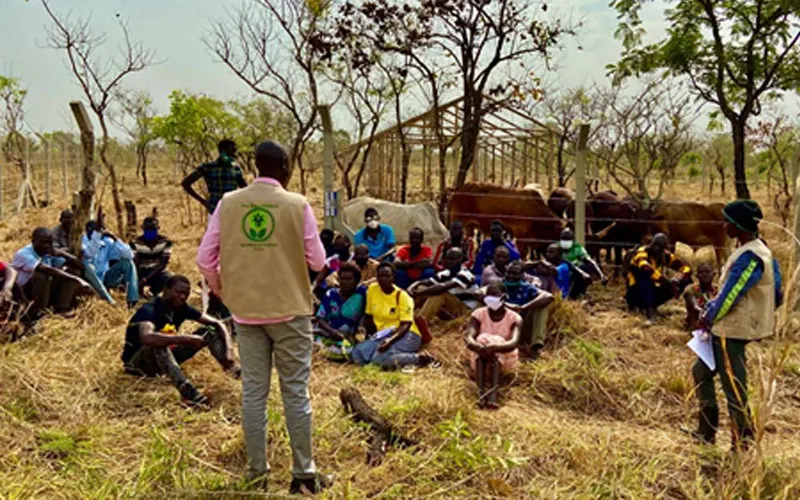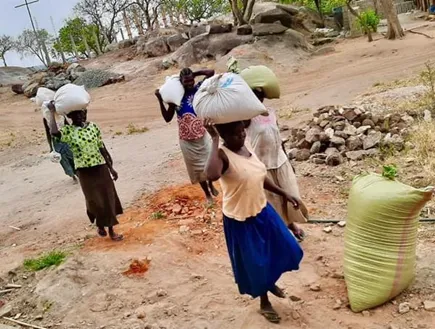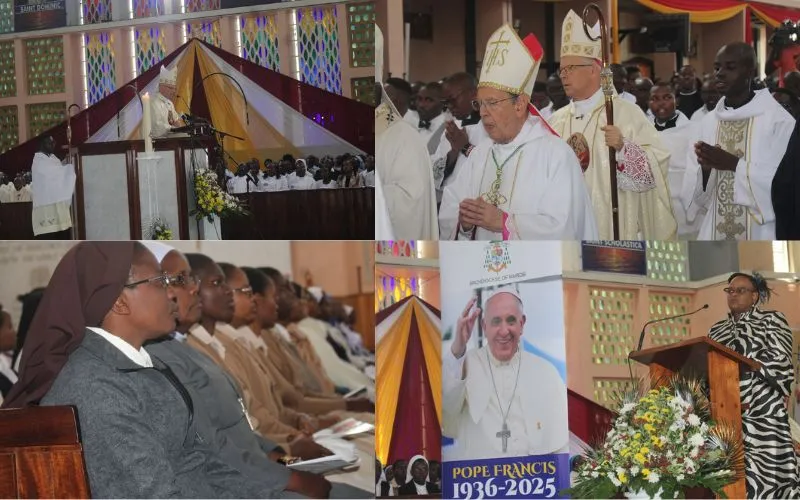“Since January, the refugees have been unable to sell food, instead struggle to find more,” Fr. Arasu says.
He explains, “Currently a refugee receives about 4 kilograms of maize flour, 2 kilograms of beans, half a litre of cooking oil and a few grams of salt once in a month. This can barely sustain refugees such as Christina who have five children.”

To help alleviate the suffering of the refugees, SDB members based at Palabek have embarked on an agricultural project aimed to create food security and employment opportunities among the refugees at Refugee Settlement.
For a start, five pairs of cows have been bought and given to the farmers for training in the project dubbed “Rebuilding Lives.”
(Story continues below)
And out of the required 164 acres for farming, 16 acres have already been acquired through hire purchase and land donation for the vast agribusiness project.
Within three months, SDB members have also bought a quarter acre of land in a commercial area for the market stalls where the farm produce will be sold.
The project targets 2,920 beneficiaries who are to include groups of farmers and others who are engaged in poultry, kitchen and mushroom production, tree planting and energy stove production.
Through the project, the Salesians are seeking to target the most vulnerable members of households including youth and women aged 18 and above, Fr. Arasu who is the Director of the Don Bosco Palabek Refugee Services told ACI Africa.
The beneficiaries are to work in groups, save their income, acquire assets and venture into businesses and compete favorably in the labour market.
“Through self-sustainability, the refugees are expected to support themselves and their families,” Fr. Arasu who explained the project said.

He added in reference to the refugee beneficiaries, “They are expected to involve themselves in other income generation activities, care better for the environment, and engage in women empowerment and other social promotion activities.”
Beneficiaries will also be equipped with business, saving and investment skills. They will also undergo Gender Based Violence (GBV) training and life-skills for youth, the Indian-born Cleric says.
“Our participant ratio is 70 percent refugees and 30 percent host community,” Fr Arasu clarifies in a report to ACI Africa, and adds that participants in the project will be expected to have at least 4 dependents under their care.
“Through this food security project, we expect to serve at least a total of 11,680 people. Indirectly we hope to serve a large number of infants in the age brackets of 3 to 6 years who are often forgotten in terms of nutritional, medical and early childhood development needs,” he adds.
Fr. Jose Ubaldino, a Salesian missionary from Venezuela who is the current Coordinator of the Agriculture project believes that the Don Bosco project will achieve its objective of reaching out to the refugees and the host community in rebuilding the lives of the refugees.
“Once we meet the food needs of the people, we improve the standard of life, help people to achieve better education and contribute to overall peace,” said Fr. Ubaldino.
Agnes Aineah is a Kenyan journalist with a background in digital and newspaper reporting. She holds a Master of Arts in Digital Journalism from the Aga Khan University, Graduate School of Media and Communications and a Bachelor's Degree in Linguistics, Media and Communications from Kenya's Moi University. Agnes currently serves as a journalist for ACI Africa.











